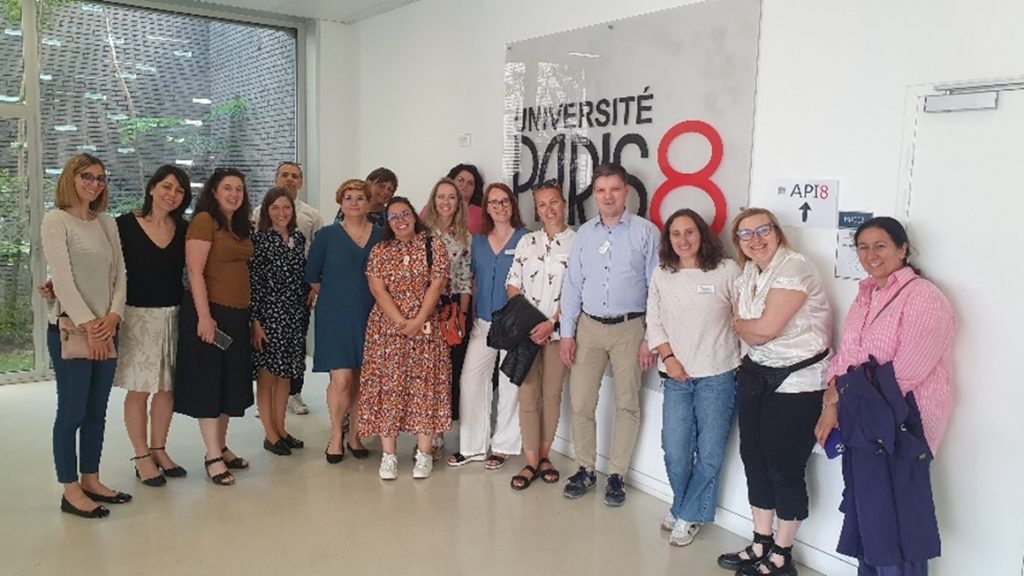Re:ERUA launched the first staff visit of the Research support Network within the Alliance
The first Staff Visit of the Research Services of the European University ERUA took place in Paris 8 University between the 31 May and the 2 June 2023. The staff visit gathered around 20 research support officers from 8 different universities[1]. The officers had the opportunity to share the different research support organization models, discussed the common obstacles and exchanged good practices in their daily work.
This staff visit is part of the activities of the Research Support Network that Re:ERUA team is setting up for the Alliance. The Networks aims to provide a privileged, horizontal and unrestricted interaction space for the research support services of the universities of the ERUA Consortium.
The objectives of this Network are to:
– Set up a positive research support environment to facilitate collaborative research projects in the Alliance, and enhance the internationalisation of research in the respective universities where the partners of the Alliance could be privileged actors.
– Set up the framework to enable the acquisition of new skills for researchers, PhD candidates and administrative staff working in research support of the ERUA alliance.
– Foster the sharing of good practices and procedures concerning research support, and enable mutual understanding.
– Multiply the chances to secure funding opportunities for researchers and PhD candidates
In the occasion of the staff visit the Network for research support gave input for the first annual roadmap. In particular they agreed to work together on the following activities that may concern, at different level both researchers, PhD students and administrative staff :
Staff weeks and Events:
First, the Network decided to organize an annual staff week for research support officer, together with the Vice-Rectors for Research, to take stock of the annual Network’s collaboration and agree on a new yearly collaboration roadmap.
Universities may also invite other network members to events of various kinds that may be of interest to the Network.
Information sessions:
The various universities have committed to share existing information sessions with the rest of the Network, and thus with the scientific community of the partner universities, to introduce researchers to EU funding opportunities.
Training sessions:
The Network is committed to sharing, with the rest of the Alliance, existing training opportunities for early career researchers, researchers, and research managers to increase their skills in their specific fields.
For researchers in particular, universities commit to open their training sessions for EU funding opportunities, such as training for ERCs or Marie Curie programmes.
For the administrative staff, the member of the Network are open to launch “Job shadowing” actions and allow, within the Erasmus+ scheme, to send or to host peers officers from partner universities/
Facilitating the emergence of collaborative projects:
One of the objectives of Re:ERUA is to facilitate the emergence of collaborative projects. The research support network can help identify a contact or laboratory in one of the partner universities, pending the development of the toolkit for collaborative projects (e.g. ERUA research portal, joint monitoring for funding opportunities)
In a nutshell, these three days were full of enthusiasm, with tangible initiatives and rich exchanges that will continue all the yearlong!
If you did not attend the staff week and you are not part of the research support network, feel free to write to Valeria Manzione (valeria.manzione02@univ-paris8.fr ) to be informed of new activities and to join the Network’s mailing list.
[1] UP8, RUC, UAGEAN, NBU, UniMC, SWPS, MRU, La Viadrina and ULPGC.

